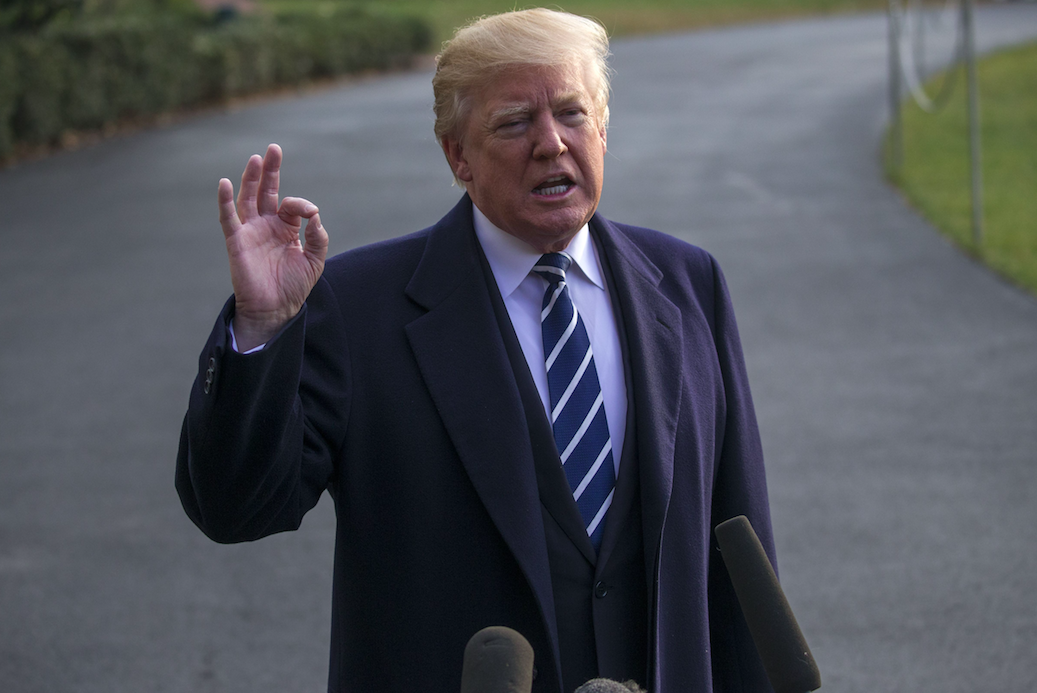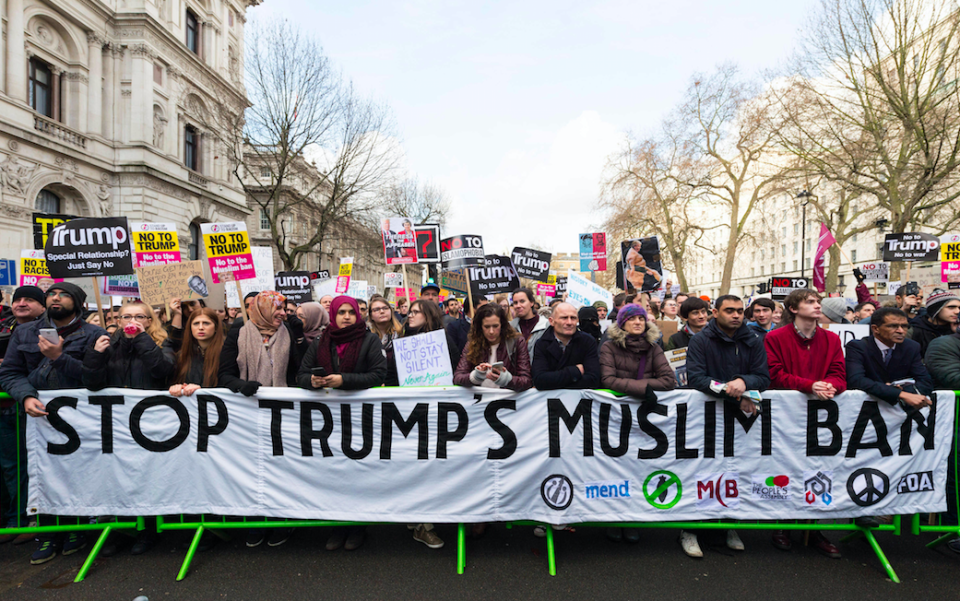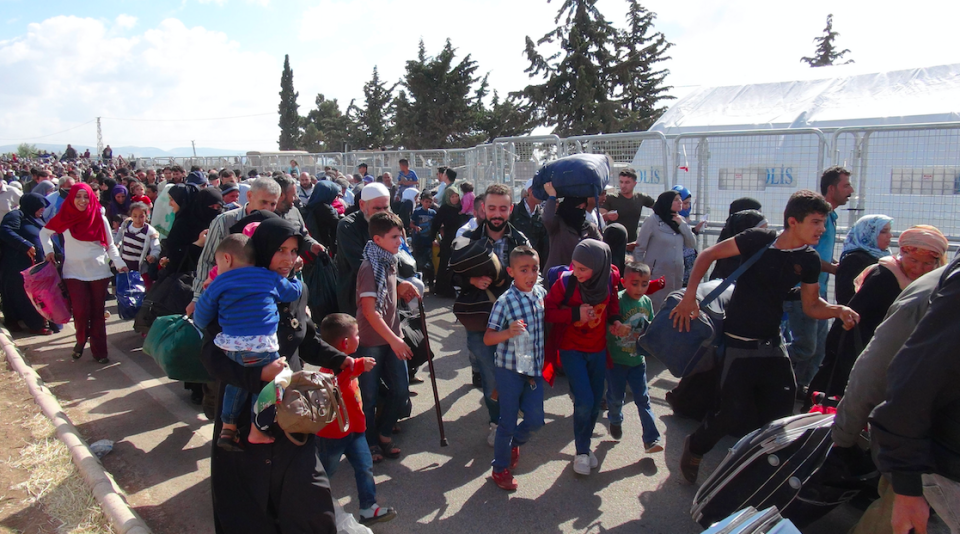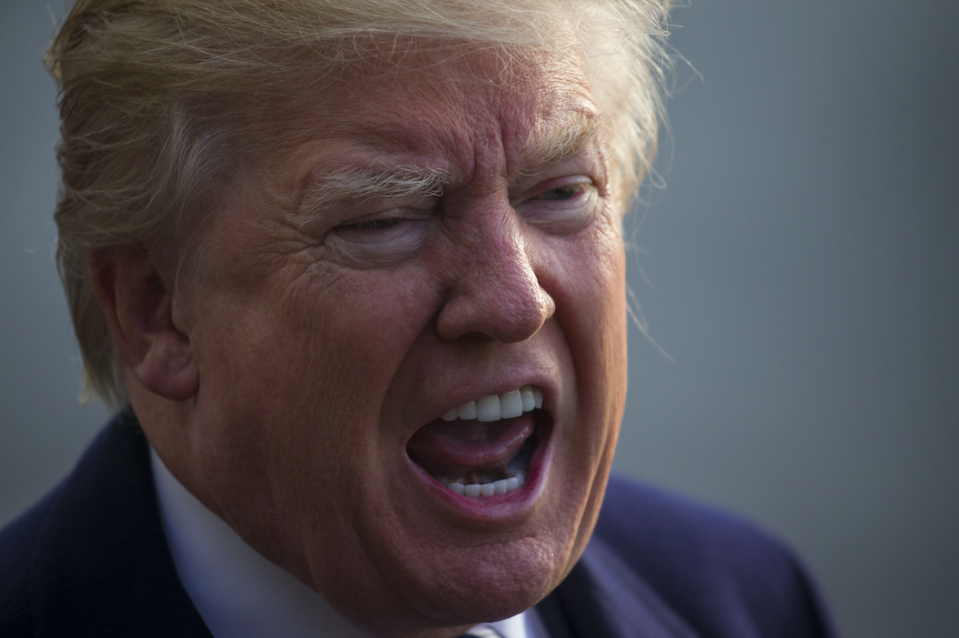US Supreme Court allows Donald Trump’s travel ban: A timeline of the President’s most controversial policy

Donald Trump’s travel ban has finally been enforced in full, following a ruling by the US Supreme Court.
The controversial policy means residents from six mostly Muslim countries will be denied entry to the United States, after months of legal wrangling.
The ban applies to travellers from Chad, Iran, Libya, Somalia, Syria and Yemen.
Here’s a look at the nearly year-long journey Trump has had to get the ban enforced…

January
In the same month that he was sworn in as President, Trump signed an executive order barring travel from seven Muslim-majority countries – Iran, Iraq, Libya, Somalia, Sudan, Syria and Yemen. The ‘Protection the Nation From Foreign Terrorist Entry into the United States’ order also barred all Syrian refugees from entering the country. However, just one day later a federal judge in New York partially blocked the order, while a federal court in Boston put the ban on hold for one week, meaning legal travellers from the affected countries could not be detained or removed.
February
With the ban proving to be hugely divisive, Trump made changes that ensured legal residents in the United States would be exempt. An extension of the ban was also blocked by a judge, before another issued a temporary block on the same day. The Justice Department attempted to appeal the block but the US Court of Appeals upheld the ban.
Most popular on Yahoo News UK
Police hunt thugs who ‘strangled’ teenager and ‘forced him to apologise for being gay’
Britain braced for hail, snow and rain as Arctic winds hit and temperatures fall
Britain First supporter gave Nazi salute and shouted ‘white power’ before driving at Muslim curry house owner
Airline crew say they saw North Korean missile from their plane
Shocking video shows how sleeping driver ploughed his lorry into motorway traffic
March
The President changed the ban and signed an executive order that barred travel from six Muslim-majority countries for 90 days, taking Iraq off the list. Syrian refugees were still banned from entering the country, but this time for 120 days. However, Hawaii sued to stop the ban from going ahead and another Federal judge blocked it shortly before it was implemented. The ruling was once again appealed by the Trump administration.
May
The Fourth Circuit Court of Appeals in Virginia blocked the travel ban from being implemented, arguing that it was more about “the President’s promised Muslim ban” than national security.

June
The Supreme Court ruled that a limited version of the ban could go into effect, denying entry to the United States to travellers from Iran, Libya, Somalia, Sudan, Syria and Yemen.
July
As the ban continued to be enforced, refugees were blocked from entering the United States – but anyone with a “bona fide relationship” with someone in the country was allowed in.
September
Trump signed another new ban as the old one drew to an end, bringing in more restrictions to travellers from Chad, Iran, Libya, North Korea, Somalia, Syria and Yemen, as well as various government officials from Venezuela.

October
After the Supreme Court dismissed an attempt to block the ban, U.S. District Judge Derrick Watson temporarily blocked it after a request from Hawaii, who argued that it was simply a way for Trump to “exclude Muslims from the United States”. Trump’s administration promised to “vigorously defend the President’s lawful action”.
December
The U.S. Supreme Court allows Trump’s travel ban to come into effect, blocking entry into the United States to six Muslim-majority countries.

 Yahoo News
Yahoo News 

